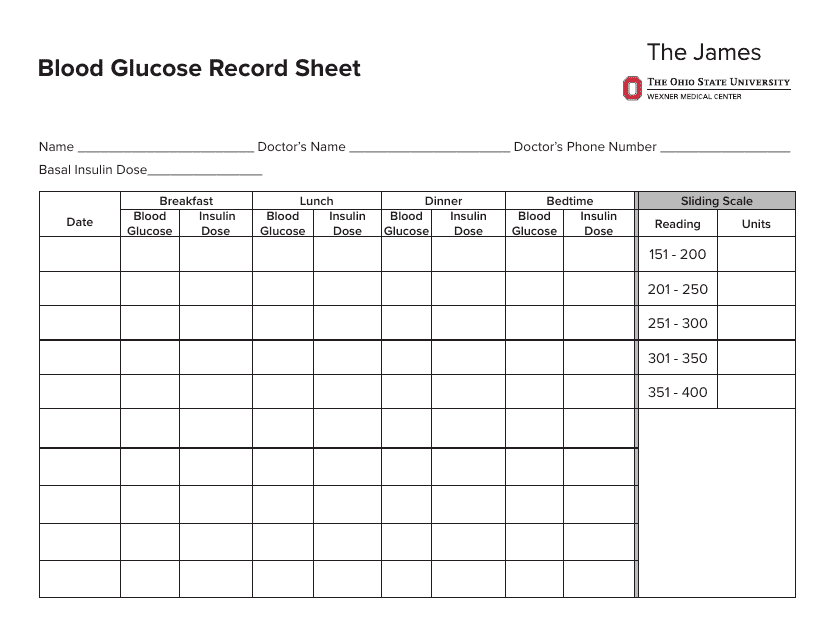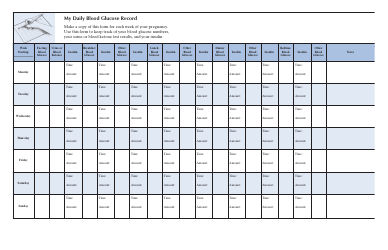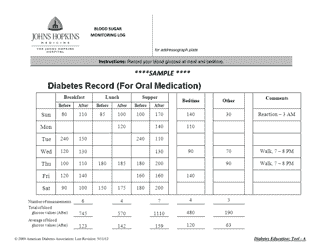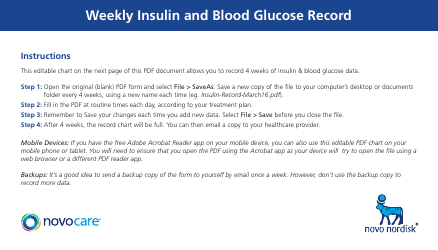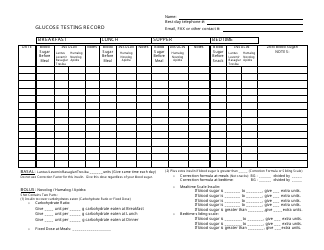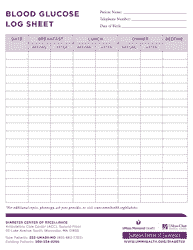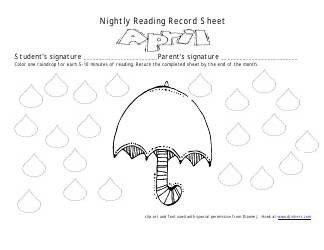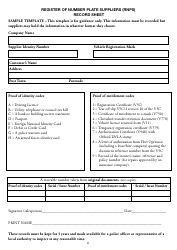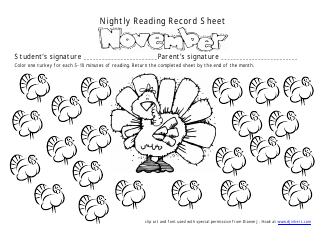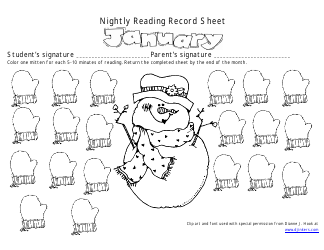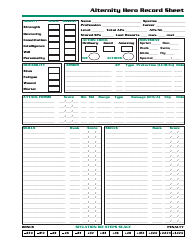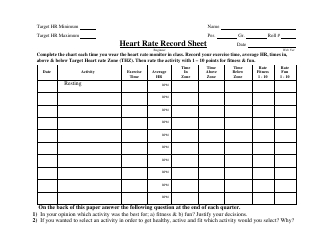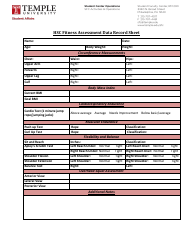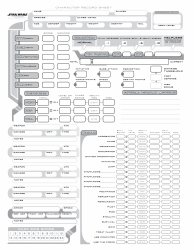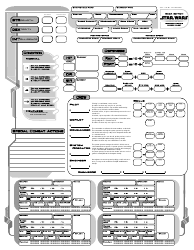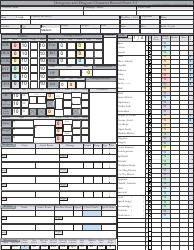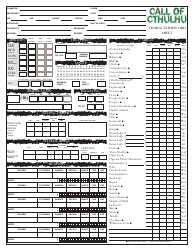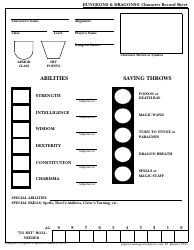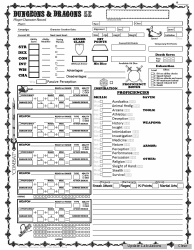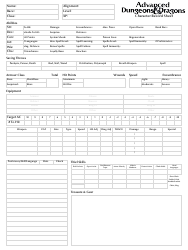Blood Glucose Record Sheet
A Blood Glucose Record Sheet is a document often used by individuals who have diabetes. Its primary use is to help track and manage blood sugar (glucose) levels over time. By logging their blood sugar levels at different periods (usually before and after meals), individuals can monitor the effects of food, exercise, medication, and stress on blood sugar. This information can aid healthcare providers in creating a more personalized treatment plan. It is an essential tool in diabetes management aiming at maintaining normal or near-to-normal glucose levels in the blood, preventing complications associated with fluctuating glucose levels.
A Blood Glucose Record Sheet is typically filed by individuals with diabetes or people who need to monitor their blood glucose levels regularly. This sheet is often used to track blood sugar readings over a period of time. It can be filled in under the guidance of healthcare professionals like doctors, nurses, or certified diabetes educators. The data from these sheets can help medical professionals provide appropriate treatments and recommendations for managing blood sugar levels.
FAQ
Q: What is a Blood Glucose Record Sheet?
A: A Blood Glucose Record Sheet is a document that people with diabetes use to monitor and track their blood glucose levels over time. It assists them and their healthcare professionals in keeping diabetes under control.
Q: Why is it important to use a Blood Glucose Record Sheet?
A: Using a Blood Glucose Record Sheet helps individuals identify patterns and trends in their blood sugar levels. It's valuable for understanding how different factors like meals, physical activity, and medications affect blood glucose. This data can guide necessary adjustments to lifestyle or treatment.
Q: How to fill out a Blood Glucose Record Sheet?
A: To fill out a Blood Glucose Record Sheet, you should note the date and time of each blood sugar test, the result, and any special circumstances such as change in diet, illness, or stress. Additional columns can be used to record doses of medication or insulin, meal intake, and exercise.
Q: How often should one update a Blood Glucose Record Sheet?
A: The frequency of updates depends on the individual's conditions and doctor's advice. Typically, those on insulin may test and record their blood glucose levels before each meal and at bedtime. Those on oral medications or managing diabetes through lifestyle might test less.
Q: Can a Blood Glucose Record Sheet be digital?
A: Yes, many people now use digital tools, such as smartphone apps or cloud-based systems, to keep track of their blood glucose levels. These digital solutions can offer additional features like reminders and analysis of trends.
